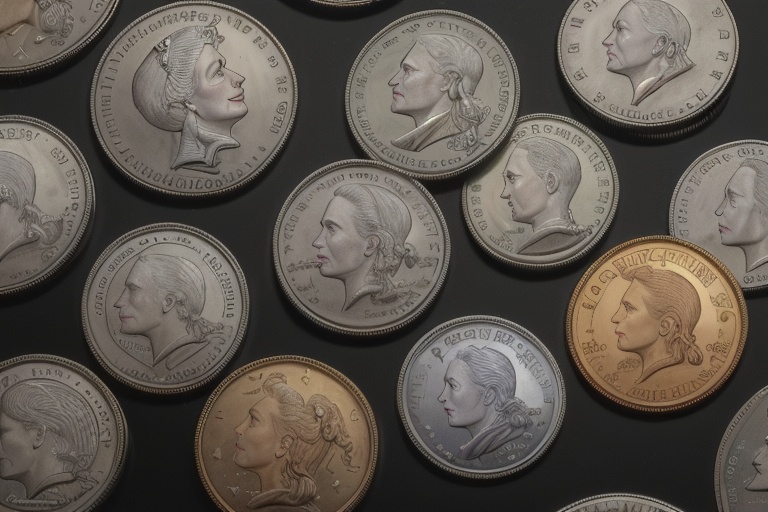Coin collecting is a timeless and fascinating pastime that bridges the gap between history, art, economics, and more. For those drawn to the charm of old and new coins, the discipline is both rewarding and educational. Whether you are a burgeoning numismatist or simply curious about where to begin, we will guide you through the fundamentals of coin collecting.
Coin collecting is a timeless and fascinating pastime that bridges the gap between history, art, economics, and more. For those drawn to the charm of old and new coins, the discipline is both rewarding and educational. Whether you are a burgeoning numismatist or simply curious about where to begin, we will guide you through the fundamentals of coin collecting.
Understanding Coin Collecting Terminology
Every collector must start with a strong foundation in numismatic vocabulary. Grasping the terminology will equip you with the knowledge to communicate effectively with fellow collectors, dealers, and experts. Here's an essential glossary of terms to get you started:
- Mint Mark: A letter or symbol on a coin indicating the mint of origin.
- Obverse: The "heads" side of a coin, generally featuring a prominent figure or symbol.
- Reverse: The "tails" side of a coin, typically bearing a design or coat of arms.
- Grade: An assessment of a coin's condition, often on a scale such as the widely used Sheldon scale.
- Uncirculated: A coin that has never been used in commerce and retains its original mint condition.
- Proof: A coin struck with a special process to yield a high-quality finish with sharper detail and a more mirror-like surface.
- Numismatics: The study or collection of currency, including coins, tokens, paper money, and medals.
With these terms at your disposal, you can begin to navigate the numismatic landscape with confidence.
How to Start Building Your Coin Collection
Embarking on your journey as a coin collector is an exciting venture that can be approached in various ways.
Choose a Focus for Your Collection
The world of coins is vast, and it helps to have a focal point. Perhaps you're drawn to the coins of a particular era, such as ancient Roman coins or early American currency. Maybe you're interested in specific themes, like wildlife or influential leaders. Some collectors are enticed by the thrill of seeking out rare error coins - mistakes from the mint that carry unique value. Your focus will guide your collecting habits and research.
Searching for Coins
Your quest for coins can lead you through a myriad of channels. Examining coin rolls obtained from banks can sometimes reveal unexpected finds, while attending coin shows brings collectors into contact with a variety of options from multiple sellers. Engaging in trade with other collectors can be both mutually beneficial and informative.
For those looking for a more formal setting, purchasing from reputable coin dealers or participating in auctions offers a more curated selection. When engaging in auctions, it's vital to be aware of the auction house's reputation, fees, and return policies to ensure a positive experience.
At times, less conventional locations like flea markets and antique shops can yield intriguing coins. However, this route requires careful inspection and knowledge to avoid paying more than a coin’s worth or unwittingly acquiring counterfeit or damaged pieces - often referred to as "problem coins."
Research and Pricing
A savvy collector understands that information is key to a lucrative collection. Research current market values and reference guides to avoid overpaying for a coin. Knowledge of grades and conditions is also vital in assessing proper valuation.
Coin Grading
Grasping the art of coin grading is a cornerstone of numismatics. The Sheldon scale, for example, ranges from 1 to 70, with 70 representing a perfect, mint condition coin. Learning to grade will enable you to estimate the value of coins accurately and make informed decisions.
Networking and Community
Joining coin clubs and forums is an excellent way to immerse oneself in the numismatic community. Clubs often host meetings, seminars, and events, fostering an environment of shared knowledge and passion. They can provide access to exclusive resources, trading opportunities, and up-to-date insights on the market and trends.
The Benefits of Coin Collecting
Aside from cultivating a potentially valuable collection, numismatics offers other enriching benefits. It is an educational activity that broadens knowledge of history and cultures. Coins are snapshots of socioeconomic times and tell stories through their designs and compositions.
The community aspect of collecting is equally rewarding. Making connections with like-minded individuals enriches the experience. Discussions can lead to valuable lessons, trade opportunities, and lifelong friendships.
Finally, coin collecting can serve as a meditative and relaxing hobby. Spending time with your collection, organizing, and researching can be a welcome respite from the daily grind.
The world of coin collecting is extensive and filled with potential adventures. As with any worthwhile endeavor, it takes time, dedication, and patience. By starting with the fundamentals, choosing a focus, and continually educating yourself, you set the stage for success. Embrace the hunt for that next great find, and enjoy the journey that numismatics provides.
Information for this article was gathered from the following source.




